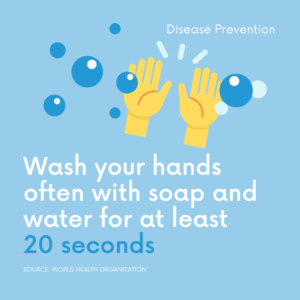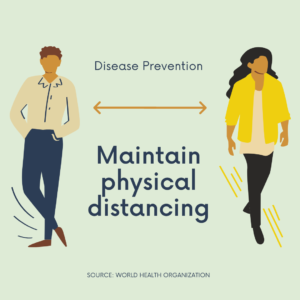ASRM Guidelines On COVID -19 need to be followed by all parties involved in surrogacy to have a successful outcome.

Coronavirus disease (COVID-19) is a recently discovered coronavirus-caused highly contagious infectious disease. COVID-19 is an infectious disease caused by SARS-CoV-2. The disease was first detected end of 2019 in Wuhan, the capital of central China’s Hubei province, and has since spread worldwide, leading to a coronavirus outbreak or pandemic in 2019–20 as per WHO.
Most people infected with the COVID-19 virus should experience fever, cough, cold, and mild to moderate respiratory disease. Older people, and those with underlying medical conditions such as cardiovascular disease, chronic respiratory disease, diabetes, and cancer, are more likely to experience severe symptoms.
COVID-19 can be transferred from person to person by sneezes and cough droplets. The spread of this new coronavirus is tracked across the globe by the World Health Organization, health organizations such as Johns Hopkins, and the Centres for Disease Control (CDC).
How does COVID -19 spread to humans?
COVID-19 appeared in December 2019, in Wuhan, a city in China. Even though the exact source of this new coronavirus is still being tracked by health authorities, early reports thought it could be connected to a seafood market in Wuhan, China.
So, this is a basic introduction to COVID -19. But what changes has it made to the surrogacy and fertility market? How guidelines of ASRM affect the fertility market? Read on to know more about it.
What is ASRM?
ASRM is an acronym for the American Society for Reproductive Medicine. ASRM is a multidisciplinary organization, committed to promoting reproductive medicine research and practice. Its initial name was the American Society for the Study of Sterility (ASSS) and then the American Fertility Society (AFS), which was founded in 1944 by a small group of fertility experts meeting in Chicago. Although primarily an American organization, it now has representatives from more than 100 countries around the world.
What are ASRM guidelines amid Coronavirus outbreaks?
According to a statement from ASRM for COVID-19, it has advised the fertility industry to suspend some of its treatment because of the global spread of the COVID -19 pandemic.
The updated guideline suggests discontinuation of existing and non-emergency procedures. The guidelines expressly delay the introduction of new treatment cycles including induction of ovulation, IVF, intrauterine inseminations (IUIs), non-urgent cryopreservation of gamete and retrievals, and frozen embryo transfers.
The recommendation, established by an independent task force that includes doctors, embryologists, and mental health practitioners, advises reducing in-person experiences and that telehealth use should be increased.
Non-medically urgent procedures such as egg freezing should also be suspended for now. IVF Clinics that have patients at mid-cycle care should ensure that they have enough staff to complete the care of the patient and should strongly promote postponement of the transfer of the embryo. Also, elective surgeries and diagnostic treatments should be suspended.
 What does it mean for the surrogacy parties involved?
What does it mean for the surrogacy parties involved?
There are two parties involved in surrogacy – the intended parents and the surrogate. So, COVID -19 will affect both equally.
What does COVID -19 mean for the intended parents?
- More time has to be devoted – Intended parents are the one who has waited a long to see their baby. Either because they are infertile or have some problems that do not let their pregnancy retain. Now, the presence of COVID -19 will further their delay. As the guidelines issued by ASRM mean that they will not do any new procedures amid this outbreak.
- Emotionally exhaustible – It is emotionally exhaustible for the intended parents to wait for more for their baby. After all, after waiting for years for something, if it takes more time it will surely become a point for an emotional breakdown of the intended parents.
- Travel restrictions – You will have to face travel restrictions as more and more countries have to shut down their borders due to the COVID-19 outbreak.
What does COVID -19 mean for the surrogates?
- Risk of health – Through pregnancy, the effectiveness of the immune system decreases, which puts pregnant individuals at a higher risk of contracting certain transmissible diseases— whether respiratory or foodborne. so, they are considered high-risk groups. They are susceptible to any disease not just COVID -19.
- No physical presence of intended parents – Recently imposed travel bans means that you will not have the physical presence of the intended parents during the time of your delivery. It can be emotionally and physically daunting but you have no other choice.
 What surrogates should do to prevent the infection?
What surrogates should do to prevent the infection?
- Go for virtual appointments – Instead of doing in-person appointments, surrogates should go for virtual appointments with the doctor. If it is too urgent, then only they should take care of hygiene while visiting the hospital.
- Take proper care of your hygiene – Wash your hands frequently with soap, or clean them with hand rubbing based on alcohol. Keep the space between you and people coughing or sneezing at least 1 meter.
- Stay away from social gatherings – If you are pregnant, you should surely avoid social gatherings and the places where there is a large crowd. Maintain physical distancing.
More topic on surrogacy:
4 Cheapest countries for surrogacy
Conclusion for ASRM Guidelines on COVID -19 and its effect on surrogacy?
All fertility seekers are getting affected by COVID- 19 outbreak. There are possible delays in infertility treatments as per the local guidelines. But staying indoors and healthy should be the top priority for all.
Therefore, these are the necessary steps and precautions you can take care of if you are a pregnant surrogate mother. After all, prevention is better than cure.
If you’d like to learn more about IVF, Egg Donation, or surrogacy services globally, check out the rest of our website at IVF Conceptions. We offer legally secure and affordable surrogacy consulting services for FREE.

 What does it mean for the surrogacy parties involved?
What does it mean for the surrogacy parties involved? What surrogates should do to prevent the infection?
What surrogates should do to prevent the infection?